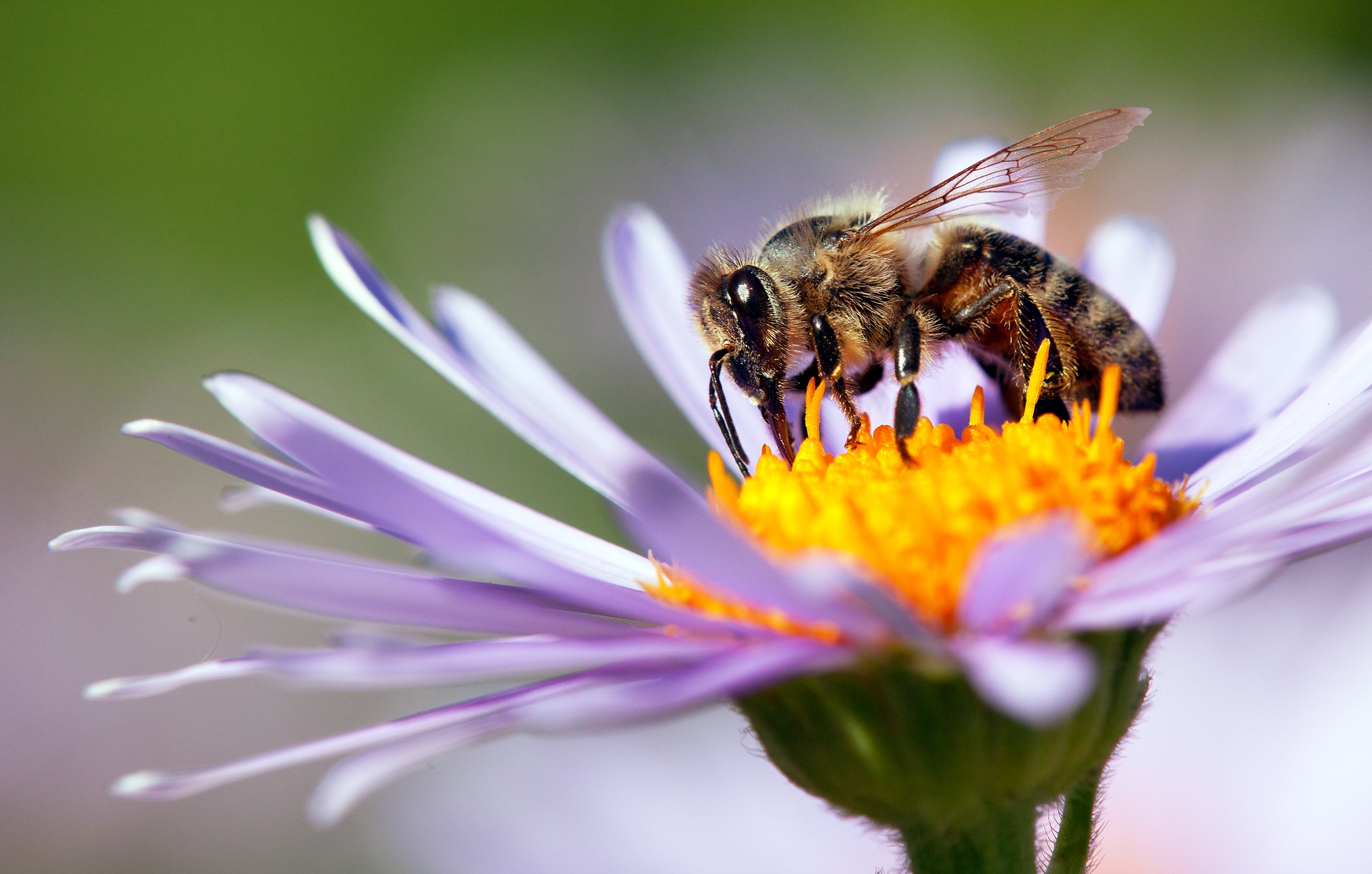Expert warns of comfort foods that will be lost if bees become extinct
Amount of fruit and veg available in supermarkets would be hugely reduced, professor says

Your support helps us to tell the story
From reproductive rights to climate change to Big Tech, The Independent is on the ground when the story is developing. Whether it's investigating the financials of Elon Musk's pro-Trump PAC or producing our latest documentary, 'The A Word', which shines a light on the American women fighting for reproductive rights, we know how important it is to parse out the facts from the messaging.
At such a critical moment in US history, we need reporters on the ground. Your donation allows us to keep sending journalists to speak to both sides of the story.
The Independent is trusted by Americans across the entire political spectrum. And unlike many other quality news outlets, we choose not to lock Americans out of our reporting and analysis with paywalls. We believe quality journalism should be available to everyone, paid for by those who can afford it.
Your support makes all the difference.Curry, baked beans and jam are just three of the creature comforts we will lose if bees become extinct, according to an expert.
The insects are crucial to the eco-system due to their role in pollination, but populations are rapidly declining due to habitat loss, pollution and the use of pesticides - among other factors.
And through a series of stark images bee expert Dave Goulson has revealed just what the devastating impact would be - should bees disappear for good.
Because they’re the dominant pollinator in most terrestrial ecosystems, thousands of wild plant species and 75 per cent of the crops we grow wouldn’t be pollinated, he warns.
The amount of fruit and veg available in supermarkets would be hugely reduced, and many flower varieties will similarly cease to exist.
The University of Sussex professor teamed-up with Clipper Teas to highlight the threat posed by pesticides to bee numbers and in turn the eco-system during Organic September.
This follows research of 2,000 adults, also commissioned by the organic, Fairtrade tea makers, which found a quarter don’t realise organic farming helps bee populations thrive.
Professor Dave Goulson said: “Many pesticides are directly toxic to bees – not just insecticides, but also fungicides and herbicides.
“And worryingly honey stores in bee nests often contain cocktails of 10 or more pesticides.
“There is abundant evidence these pesticides kill bees or have ‘sublethal’ effects such as impaired learning, low resistance to disease, and reduced fertility.
“Furthermore, herbicides also get rid of weeds - otherwise known as wildflowers - so less food for bees.”
The study also found 37 per cent aren’t sure how organic food is better for the environment than non-organic produce.
Four in 10 don’t know food produced this way contains no harmful chemicals, while 44 per cent aren’t aware fewer pesticides are used.
More than half also don’t realise organic foods are better for insects and other animals, and 59 per cent have no idea they’re also better for our own health.
Caroline Rose, from Clipper Teas, said: “It’s surprising that more than half our nation isn’t aware that organic foods are better for insects and other wildlife.
“And that nearly 60 per cent don’t realise the wide-reaching benefits of organic produce on not just the environment, but their health.
“We’re asking more people to buy organic because simply put, more organic produce means more organic farms and more organic farms means fewer pesticides and more wildlife.
“What’s more, there’s no compromise on taste, less nasties in your food and drink means a cleaner, more natural and more delicious flavour, so there really is no downside.”
Organic produce is also natural, and not bleached or died a particular colour - traits 61 per cent and 65 per cent respectively aren’t aware of.
Furthermore, 43 per cent don’t know organic soil can help prevent climate change - because it absorbs more carbon dioxide than non-organic varieties.
And this lack of awareness may explain why 27 per cent of adults don’t consider the impact on the eco-system when purchasing food produce and other items.
Caroline Rose added: “We believe it’s down to businesses, as well as individuals to make steps to improving our environment which is why we’ve launched this initiative this Organic September.
“We have a long history of being organic and Fairtrade and want to make a real difference but need others to follow suit.”
However, there is good news - the study carried out through OnePoll found 64 per cent have taken steps to make their garden or outside space bee friendly.
Popular methods include planting bee friendly plants and flowers (72 per cent), letting their lawn grow for longer than normal (45 per cent), and not using pesticides (42 per cent).
Professor Goulson added: “There are at least 6,000 different types of pollinating insect in the UK alone.
“Bees are remarkably clever – they’re able to learn the most rewarding flowers, memorise landmarks, and navigate to and from their nest over miles of countryside.
“They also avoid empty flowers by sniffing them for the whiff of a previous recent bee visitor.
“And the phrase ‘busy bee’ is not without merit - a single bee can pollinate 4,000 flowers in a day.
“So, it’s wonderful to see just how many people are doing their best to help bees - but the battle to save them is far from over.”
SWNS
Join our commenting forum
Join thought-provoking conversations, follow other Independent readers and see their replies
Comments